CADGME 2022: Digital Tools in Mathematics Education
ADVISORY: (1) Session 9.1 is switched with 12.4 and session 11.2 is switched with 8.3. (2) Session 1.1 will be done online instead of onsite. Also, Speakers of Session 4.4 (Monika Dockendorff) with Session 8.3 (Fadhlan Muchlas) will switch, because of scheduling difficulties. Session 2.3. (Theodosia Prodromou) will be rescheduled.
To see the details, click here.
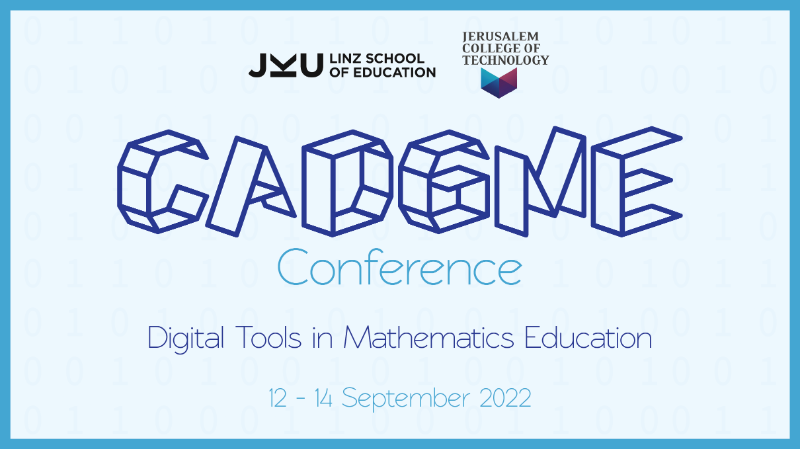
After successful conferences held at Pécs, Hungary (2007), Hagenberg, Austria (2009), Hluboká nad Vltavou, Czech Republic (2010), Novi Sad, Serbia (2012), Halle, Germany (2014), Targu Mures, Romania (2016) and Coimbra, Portugal (2018), we could have small CADGME conferences online only in the years 2020 and 2021. We are delighted to announce that the CADGME conference continues. The team of the Jerusalem College of Technology and Levinski College of Education (Tel Aviv) have volunteered to host the conference in 2022 in the beautiful city of Jerusalem. We will be happy to host you for a wonderful CADGME 2022 conference in Jerusalem, the 10th in the series. The conference will take place from 12 to14 September 2022.
Originally, the conference featured mostly Computer Algebra and Dynamic Geometry Systems, as they were the main tools in mathematics education, whence the name CADGME (Computer Algebra and Dynamic Geometry in Mathematics Education). However, in recent years, the development of technology accelerated and we started to broaden our focus on all Digital Tools in Mathematics Education. We made horizons broader and address now related topics, initially STEM (Science, Technology, Engineering and Mathematics). Nowadays, creativity and creation draw more attention in education, thus we initiated some special groups on STEAM Education including the Arts in our topics.
Keynote Speakers
_________________________________________________________________________________________________________________________________ Gershon Elber, Technion, Haifa, IL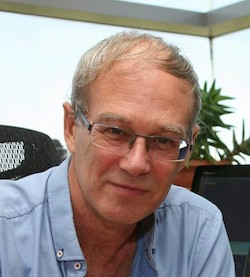 Gershon Elber is a Professor in the Computer Science Department, Technion, Israel. His research interests span computer aided geometric design and computer graphics. He received a BSc in Computer Engineering and an MSc in Computer Science from the Technion, Israel in 1986 and 1987, respectively, and a PhD in Computer Science from the University of Utah, USA, in 1992. Prof. Elber had several academic and Technion appointments, including the deputy vice president for computing, Technion, 2010-2013, and a member and head of the Solid Modeling Association (the parent organization of the solid and physical modeling, SPM, conferences), 2008-2010. He is now the head of the Technion Additive Manufacturing Center and he is a member of the ACM.
Prof. Elber has served on the editorial board of the Computer Aided Design, Computer Graphics Forum, The Visual Computer, Graphical Models, and the International Journal of Computational Geometry \& Applications and has served in many conferences' program committees including Solid Modeling, Shape Modeling, Geometric Modeling and Processing, Pacific Graphics, Computer Graphics International, and Siggraph. He was one of the paper chairs of Solid Modeling 2003 and Solid Modeling 2004, one of the conference chairs of Solid and Physical Modeling 2010, the chair of GDM 2014, the conference co-chair of SIAM GD/SPM 2015, and the conference co-chair of SPM 2018. He has published over 250 papers in international conferences and journals, received 14 best paper awards, presented a dozen keynote plenary talks, and is one of the authors of a book titled "Geometric Modeling with Splines - An Introduction". He also received the John Gregory Memorial Award, 2011, in "Appreciation for Outstanding Contributions in Geometric Modeling", the Solid Modeling Association pioneers award in 2016, and the Bezier award in 2019.
Keynote: Science Art Synergy
The art work of M. C. Escher needs no introduction. We have all learned to appreciate the impossibilities that this master of illusion's artwork presents to the layman's eye. Nevertheless, it may come as a surprise for some, but many of the so-called 'impossible' drawings of M. C. Escher can be realized as actual physical, tangible, three-dimensional objects, in many cases using layered manufacturing technologies. These tangible objects will resemble the Escher's drawings when viewed from a certain viewing direction.
In this talk, I will discuss several art-related applications but in the context of computer aided geometric design and manufacturing software tools, extrapolating on drawings and art-work made by Escher and many others. We will portray several unique geometric modeling tools that enable one to synthesize many of these so called ‘impossible’ and illusive objects, only to be fabricated by layered manufacturing technologies (3D printing), among others.
_________________________________________________________________________________________________________________________________
Zoltán Kovács, the Private University College of Education of the Diocese of Linz, Linz, AT
Gershon Elber is a Professor in the Computer Science Department, Technion, Israel. His research interests span computer aided geometric design and computer graphics. He received a BSc in Computer Engineering and an MSc in Computer Science from the Technion, Israel in 1986 and 1987, respectively, and a PhD in Computer Science from the University of Utah, USA, in 1992. Prof. Elber had several academic and Technion appointments, including the deputy vice president for computing, Technion, 2010-2013, and a member and head of the Solid Modeling Association (the parent organization of the solid and physical modeling, SPM, conferences), 2008-2010. He is now the head of the Technion Additive Manufacturing Center and he is a member of the ACM.
Prof. Elber has served on the editorial board of the Computer Aided Design, Computer Graphics Forum, The Visual Computer, Graphical Models, and the International Journal of Computational Geometry \& Applications and has served in many conferences' program committees including Solid Modeling, Shape Modeling, Geometric Modeling and Processing, Pacific Graphics, Computer Graphics International, and Siggraph. He was one of the paper chairs of Solid Modeling 2003 and Solid Modeling 2004, one of the conference chairs of Solid and Physical Modeling 2010, the chair of GDM 2014, the conference co-chair of SIAM GD/SPM 2015, and the conference co-chair of SPM 2018. He has published over 250 papers in international conferences and journals, received 14 best paper awards, presented a dozen keynote plenary talks, and is one of the authors of a book titled "Geometric Modeling with Splines - An Introduction". He also received the John Gregory Memorial Award, 2011, in "Appreciation for Outstanding Contributions in Geometric Modeling", the Solid Modeling Association pioneers award in 2016, and the Bezier award in 2019.
Keynote: Science Art Synergy
The art work of M. C. Escher needs no introduction. We have all learned to appreciate the impossibilities that this master of illusion's artwork presents to the layman's eye. Nevertheless, it may come as a surprise for some, but many of the so-called 'impossible' drawings of M. C. Escher can be realized as actual physical, tangible, three-dimensional objects, in many cases using layered manufacturing technologies. These tangible objects will resemble the Escher's drawings when viewed from a certain viewing direction.
In this talk, I will discuss several art-related applications but in the context of computer aided geometric design and manufacturing software tools, extrapolating on drawings and art-work made by Escher and many others. We will portray several unique geometric modeling tools that enable one to synthesize many of these so called ‘impossible’ and illusive objects, only to be fabricated by layered manufacturing technologies (3D printing), among others.
_________________________________________________________________________________________________________________________________
Zoltán Kovács, the Private University College of Education of the Diocese of Linz, Linz, AT
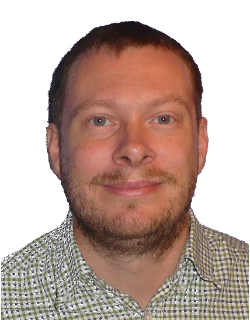 Zoltán Kovács is an Assistant Professor at The Private University College of Education of the Diocese of Linz (Austria), since 2015. He is a cooperation partner of Linz School of Education, Department for STEM Didactics. He is also a volunteer core developer at GeoGebra since 2010. In addition, he is the author of over hundred published scientific papers and several scientific communications (including various software packages) in different international journals and conferences. His latest software developments include GeoGebra Discovery, and a web version of the Tarski system.
Keynote: Easy (but exact) study of caustics of conics
The talk gives an overview on visualizing locus and envelope curves. The ``draggable locus'' feature was introduced in GeoGebra 5 to bring algebraic curves closer to the students. Since 2014 many attempts were made to enhance computer algebra methods and dynamic geometry tools to study: among others, support for study of caustics of a parabola in the classroom in an easy way. User interface improvements, backend updates and algebraic experiments led finally to a simple method to study the caustics of a circle or a parabola for non-experts too. The talk will show some of the milestones of this long road, starting with the very beginnings, the first steps in implementing the LocusEquation command, the implementation of a standalone geometry proving system and its unification with the locus equation subsystem. During the talk, some simple ways will be presented on how to get the caustics of a circle or a parabola. This can be fruitful not just for mathematics classes but for STEAM projects (for example, with optical applications in physics).
_________________________________________________________________________________________________________________________________
Meir Komar, Lev Academic Centre (JCT), IL
Zoltán Kovács is an Assistant Professor at The Private University College of Education of the Diocese of Linz (Austria), since 2015. He is a cooperation partner of Linz School of Education, Department for STEM Didactics. He is also a volunteer core developer at GeoGebra since 2010. In addition, he is the author of over hundred published scientific papers and several scientific communications (including various software packages) in different international journals and conferences. His latest software developments include GeoGebra Discovery, and a web version of the Tarski system.
Keynote: Easy (but exact) study of caustics of conics
The talk gives an overview on visualizing locus and envelope curves. The ``draggable locus'' feature was introduced in GeoGebra 5 to bring algebraic curves closer to the students. Since 2014 many attempts were made to enhance computer algebra methods and dynamic geometry tools to study: among others, support for study of caustics of a parabola in the classroom in an easy way. User interface improvements, backend updates and algebraic experiments led finally to a simple method to study the caustics of a circle or a parabola for non-experts too. The talk will show some of the milestones of this long road, starting with the very beginnings, the first steps in implementing the LocusEquation command, the implementation of a standalone geometry proving system and its unification with the locus equation subsystem. During the talk, some simple ways will be presented on how to get the caustics of a circle or a parabola. This can be fruitful not just for mathematics classes but for STEAM projects (for example, with optical applications in physics).
_________________________________________________________________________________________________________________________________
Meir Komar, Lev Academic Centre (JCT), IL
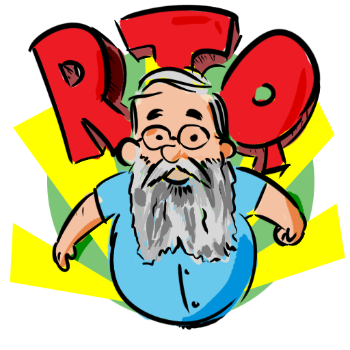
Meir Komar, has been actively engaged in Computer Science Education for over 40 years at both secondary and tertiary levels. He is a senior lecturer at JCT - the Jerusalem College of Technology (Lev Academic Center) in the Computer Department. Amongst his previous academic positions; Chairman of the Science and Technology Teaching Department; Founder and Head of the Academic Quality Unit at the College. Meir has a range of expertise areas as well as a range of research interests. Meir is deeply involved in improving the level of instruction in Higher Education and gives workshops and seminars in addition to individual mentoring of academic staff. His current fields of interest are gender issues in engineering education and methodologies for improving academic instruction.
Keynote: It's time for Reflection
In the last decade, Higher Education has seen major challenges causing the various stakeholders to re-examine the desired directions needed to stay relevant. Specifically, the last two years have accelerated these changes.
In this talk, we will focus on the role of the instructor in Higher Education and use that to identify some of the key areas of change that are happening worldwide.
• The influence of Gen-Z students and looking ahead towards Gen-Alpha
• The move from teacher-centered instruction to student-centered instruction.
• The rapid introduction of new modalities in teaching/learning.
• Changes in the learning spaces both physical and digital.
• The deepening interactions between industry and academia especially in STEM.
• The social and emotional impact of these changes both on the learner and the instructor.
These transformations have caused the need for designing a revised job description for a higher education practitioner. The main objective of the session is to enable a practitioner in higher education to reflect on their current practises and help focus on the path ahead.
_________________________________________________________________________________________________________________________________
Ilias Kotsireas, Wilfrid Laurier University, ON, CA
Meir Komar, has been actively engaged in Computer Science Education for over 40 years at both secondary and tertiary levels. He is a senior lecturer at JCT - the Jerusalem College of Technology (Lev Academic Center) in the Computer Department. Amongst his previous academic positions; Chairman of the Science and Technology Teaching Department; Founder and Head of the Academic Quality Unit at the College. Meir has a range of expertise areas as well as a range of research interests. Meir is deeply involved in improving the level of instruction in Higher Education and gives workshops and seminars in addition to individual mentoring of academic staff. His current fields of interest are gender issues in engineering education and methodologies for improving academic instruction.
Keynote: It's time for Reflection
In the last decade, Higher Education has seen major challenges causing the various stakeholders to re-examine the desired directions needed to stay relevant. Specifically, the last two years have accelerated these changes.
In this talk, we will focus on the role of the instructor in Higher Education and use that to identify some of the key areas of change that are happening worldwide.
• The influence of Gen-Z students and looking ahead towards Gen-Alpha
• The move from teacher-centered instruction to student-centered instruction.
• The rapid introduction of new modalities in teaching/learning.
• Changes in the learning spaces both physical and digital.
• The deepening interactions between industry and academia especially in STEM.
• The social and emotional impact of these changes both on the learner and the instructor.
These transformations have caused the need for designing a revised job description for a higher education practitioner. The main objective of the session is to enable a practitioner in higher education to reflect on their current practises and help focus on the path ahead.
_________________________________________________________________________________________________________________________________
Ilias Kotsireas, Wilfrid Laurier University, ON, CA
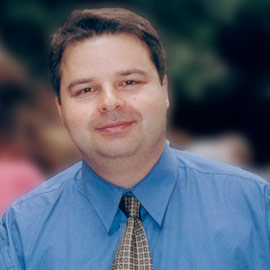 Ilias S. Kotsireas serves as a Computer Science Professor and the Director of the CARGO Lab http://www.cargo.wlu.ca at Wilfrid Laurier University, in Waterloo, Ontario, Canada. He has more than 200 refereed journal and conference publications, chapters in books, authored and edited books and special issues of journals, in the research areas of Computational Algebra, Metaheuristics, High-Performance Computing, Dynamical Systems and Combinatorial Design Theory.
He serves on the Editorial Board of 11 international journals. He serves as the Managing Editor of two Springer journals and as the Editor in Chief of a Springer journal and a Birkhauser book series. He has organized a very large number of international conferences in Europe, North America and Asia, often serving as a Program Committee Chair or General Chair. His research has been funded by NSERC, the European Union and NSFC. He has received funding for conference organization from Maplesoft, the Fields Institute and several Wilfrid Laurier University offices. He served as Chair of the ACM Special Interest Group on Symbolic Computation (SIGSAM) on a 4-year term: July 2013 to July 2017. He is a co-chair of the Applications of Computer Algebra Working Group (ACA WG), a group of 45 internationally renowned researchers that oversees the organization of the ACA conference series. He has delivered more than 20 invited/plenary talks at conferences around the world.
Keynote: The fascinating world of CSPs
Constraint Satisfaction Problems (CSPs) constitute a powerful and versatile AI formalism that allows us to formulate and solve diverse problems across a wide spectrum of disciplines. We will present the CSP formalism and illustrate it with several specific sample problems.
_________________________________________________________________________________________________________________________________
Registration
The Registration Form can be completed here. Please note, if you submit an abstract you still need to do it on EasyChair. Please see above.
Publication & Proceedings
Program
The program and the schedule of the conference in PDF format can be downloaded here
Abstracts
The abstracts of contributed talks and posters in PDF format can be downloaded here.
Post-conference publication
If you wish to publish a paper in a journal about your talk at the CADGME 2022 conference, you will be able to submit it to special issues of the following peer-reviewed journals:
Ilias S. Kotsireas serves as a Computer Science Professor and the Director of the CARGO Lab http://www.cargo.wlu.ca at Wilfrid Laurier University, in Waterloo, Ontario, Canada. He has more than 200 refereed journal and conference publications, chapters in books, authored and edited books and special issues of journals, in the research areas of Computational Algebra, Metaheuristics, High-Performance Computing, Dynamical Systems and Combinatorial Design Theory.
He serves on the Editorial Board of 11 international journals. He serves as the Managing Editor of two Springer journals and as the Editor in Chief of a Springer journal and a Birkhauser book series. He has organized a very large number of international conferences in Europe, North America and Asia, often serving as a Program Committee Chair or General Chair. His research has been funded by NSERC, the European Union and NSFC. He has received funding for conference organization from Maplesoft, the Fields Institute and several Wilfrid Laurier University offices. He served as Chair of the ACM Special Interest Group on Symbolic Computation (SIGSAM) on a 4-year term: July 2013 to July 2017. He is a co-chair of the Applications of Computer Algebra Working Group (ACA WG), a group of 45 internationally renowned researchers that oversees the organization of the ACA conference series. He has delivered more than 20 invited/plenary talks at conferences around the world.
Keynote: The fascinating world of CSPs
Constraint Satisfaction Problems (CSPs) constitute a powerful and versatile AI formalism that allows us to formulate and solve diverse problems across a wide spectrum of disciplines. We will present the CSP formalism and illustrate it with several specific sample problems.
_________________________________________________________________________________________________________________________________
Registration
The Registration Form can be completed here. Please note, if you submit an abstract you still need to do it on EasyChair. Please see above.
Publication & Proceedings
Program
The program and the schedule of the conference in PDF format can be downloaded here
Abstracts
The abstracts of contributed talks and posters in PDF format can be downloaded here.
Post-conference publication
If you wish to publish a paper in a journal about your talk at the CADGME 2022 conference, you will be able to submit it to special issues of the following peer-reviewed journals:
- The International Journal for Technology in Mathematics Education (IJTME)
- Open Education Studies
- Other publications will be considered
- Abstracts August 15th, 2022 (New date)
- Request for Abstract revisions August 20th, 2022
- Final abstract for the book of abstracts September 1st, 2022
- Conference dates September 12-14, 2022
- Submission of full paper for SI: October 31st, 2022
Conference Fees:
- Regular: 110 €
- Student: 90 €
- Regular (Online): 50 €
- Student (Online): 40 €